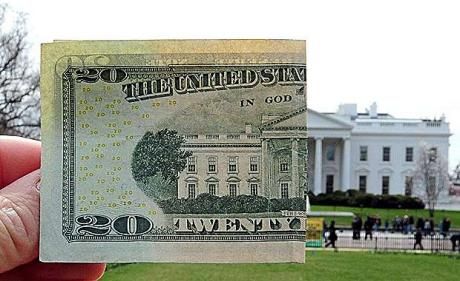THE DAILY TELEGRAPH: As the US Federal Reserve meets today to decide whether its next blast of quantitative easing should be $1 trillion or a more cautious $500bn, it does so knowing that China and the emerging world view the policy as an attempt to drive down the dollar.

The Fed's "QE2" risks accelerating the demise of the dollar-based currency system, perhaps leading to an unstable tripod with the euro and yuan, or a hybrid gold standard, or a multi-metal "bancor" along lines proposed by John Maynard Keynes in the 1940s.
China's commerce ministry fired an irate broadside against Washington on Monday. "The continued and drastic US dollar depreciation recently has led countries including Japan, South Korea, and Thailand to intervene in the currency market, intensifying a 'currency war'. In the mid-term, the US dollar will continue to weaken and gaming between major currencies will escalate," it said.
David Bloom, currency chief at HSBC, said the root problem is lack of underlying demand in the global economy, leaving Western economies trapped near stalling speed. "There are no policy levers left. Countries are having to tighten fiscal policy, and interest rates are already near zero. The last resort is a weaker currency, so everybody is trying to do it," he said.
Pious words from G20 summit of finance ministers last month calling for the world to "refrain" from pursuing trade advantage through devaluation seem most honoured in the breach.
Taiwan intervened on Monday to cap the rise of its currency, while Korea's central bank chief said his country is eyeing capital controls as part of its "toolkit" to stem the flood of Fed-created money leaking out of the US and sloshing into Asia. Brazil has just imposed a 2pc tax on inflows into both bonds and equities – understandably, since the real has risen by 35pc against the dollar this year and the country has a current account deficit.
"It is becoming harder to mop up the liquidity flowing into these countries," said Neil Mellor, of the Bank of New York Mellon. "We fully expect more central banks to impose capital controls over the next couple of months. That is the world we live in," he said. Globalisation is unravelling before our eyes. Read on and comment >>> Ambrose Evans-Pritchard, International Business Editor | Monday, November 01, 2010
No comments:
Post a Comment